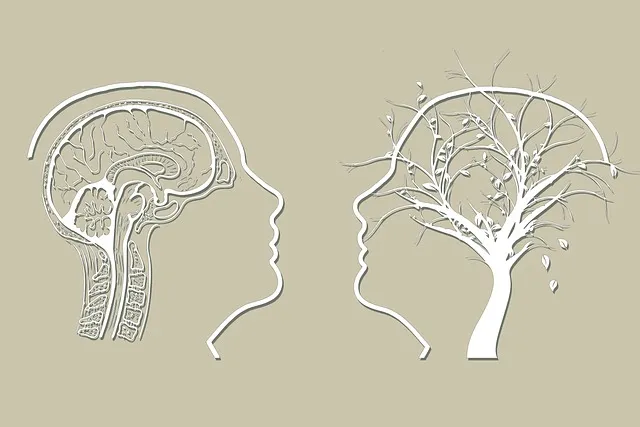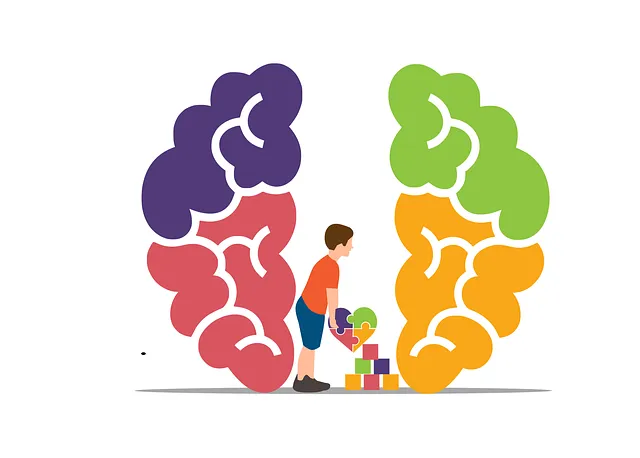Crafting Your Mental Wellness Routine at Kaiser Permanente Centennial
The Kaiser Permanente mental health facility in Centennial prioritizes holistic mental wellness, foc…….
Welcome to an in-depth exploration of the Kaiser Permanente mental health facility in Centennial, a pioneering institution at the forefront of transforming mental healthcare delivery. This article aims to unravel the multifaceted aspects of this facility, shedding light on its history, operations, global impact, and future trajectory. By delving into these realms, we will uncover how Kaiser Permanente Centennial sets new standards in addressing the complex landscape of mental health services worldwide.
Kaiser Permanente (KP) is a not-for-profit healthcare provider renowned for its comprehensive approach to healthcare services. The Kaiser Permanente mental health facility in Centennial, Colorado, USA, is a flagship member of this network, dedicated to delivering exceptional mental healthcare. At its core, the facility offers a wide range of services including psychiatric evaluation and treatment, therapy (individual, group, and family), medication management, and crisis intervention.
Established in 1985 as part of the Kaiser Permanente healthcare system, the Centennial facility has evolved to meet the growing demands of mental health care. Over the years, it has expanded its services and adapted to advancements in treatment methodologies, solidifying its position as a leader in the industry. The facility’s significance lies not only in its ability to serve a diverse population but also in its contribution to shaping evidence-based practices globally.
Kaiser Permanente Centennial represents a model for integrated healthcare delivery, seamlessly blending primary care with specialized mental health services. This holistic approach ensures that patients receive comprehensive treatment, reducing the stigma often associated with seeking mental health support. By integrating these services, the facility promotes early intervention and continuous care, which are crucial factors in improving patient outcomes.
The Kaiser Permanente model has gained international recognition for its successful implementation in various countries. Its emphasis on community-based healthcare and patient-centered care has inspired global health initiatives. Many nations have adopted elements of the KP approach to enhance their mental health service delivery, particularly in areas with limited resources, leading to improved access and quality of care.
Several key trends contribute to the facility’s global impact:
The implementation of Kaiser Permanente-inspired models varies across regions, reflecting local healthcare systems and cultural nuances:
| Region | Adaptation | Impact |
|—|—|—|
| Europe | The UK’s National Health Service (NHS) adopted a similar integrated care model, improving mental health service accessibility. | Reduced wait times and increased patient satisfaction with mental health services. |
| Asia | Japan’s public healthcare system incorporated KP’s evidence-based practices, leading to improved treatment outcomes for depression and anxiety disorders. | Higher rates of successful treatment and better patient retention in care programs. |
| Middle East | Saudi Arabia’s Ministry of Health implemented a version of KP’s model, focusing on community outreach and early intervention. | Increased awareness and reduced stigma associated with mental health issues among younger demographics. |
Kaiser Permanente Centennial operates within a dynamic healthcare market characterized by increasing demand for mental health services. The facility’s economic impact is multifaceted:
The mental health facility plays a vital role in the regional economy:
Kaiser Permanente Centennial has embraced technological advancements to enhance patient care:
These technological innovations have significantly improved patient outcomes:
In the future, KP may explore:
The Kaiser Permanente mental health facility operates within a stringent regulatory environment designed to ensure patient safety and ethical practices:
These policies have a direct impact on KP Centennial’s operations:
Despite its many achievements, Kaiser Permanente Centennial faces several challenges:
To address these issues:
The following case studies highlight successful implementations of Kaiser Permanente Centennial’s strategies:
Case Study 1: Community-Based Mental Health Program
Case Study 2: Telehealth for Rural Populations
Case Study 3: AI-Assisted Diagnosis and Treatment
Looking ahead, Kaiser Permanente mental health facility Centennial is poised for further growth and innovation:
To capitalize on these trends:
Kaiser Permanente mental health facility Centennial represents a beacon of hope and innovation in the field of mental healthcare. Its comprehensive approach, global influence, and commitment to evidence-based practices have set new standards for delivering quality mental health services. As the facility continues to evolve and adapt to emerging trends, it remains a testament to the power of integrated care, technological advancements, and dedicated professionals in transforming lives and communities.
Q: How does Kaiser Permanente ensure patient privacy and confidentiality?
A: KP adheres to strict HIPAA regulations, implementing various security measures to protect patient data, including encryption, access controls, and regular staff training on privacy practices.
Q: Are mental health services at Kaiser Permanente covered by insurance?
A: Yes, most insurance plans are accepted, and the facility works directly with insurers to ensure smooth billing processes. KP also offers a sliding fee scale based on income for uninsured individuals.
Q: Can I access mental health care remotely through Kaiser Permanente’s telehealth services?
A: Absolutely! Telehealth is one of KP’s key strengths, offering video conferencing, mobile apps, and virtual reality therapy sessions for remote patients.
Q: How does Kaiser Permanente address the stigma associated with seeking mental health help?
A: Through community education campaigns, advocacy efforts, and patient-centered care models, KP aims to reduce stigma. They encourage open conversations about mental health and promote understanding through various initiatives.
Q: What types of mental health disorders are treated at the Kaiser Permanente facility in Centennial?
A: The facility provides a full range of services for all ages, including depression, anxiety, bipolar disorder, schizophrenia, PTSD, and personality disorders, among others. They also offer specialized programs for trauma recovery and geriatric mental health.

The Kaiser Permanente mental health facility in Centennial prioritizes holistic mental wellness, foc…….

The Kaiser Permanente mental health facility in Centennial offers a comprehensive range of services…….

Mental health advocacy initiatives, like the Kaiser Permanente mental health facility in Centennial,…….

The Kaiser Permanente mental health facility Centennial prioritizes coping skills development as a c…….

The Kaiser Permanente Mental Health Facility Centennial focuses on swift and comprehensive crisis in…….

The Kaiser Permanente mental health facility in Centennial prioritizes burnout prevention and resili…….

The Kaiser Permanente mental health facility in Centennial is a leader in Crisis Intervention Team (…….